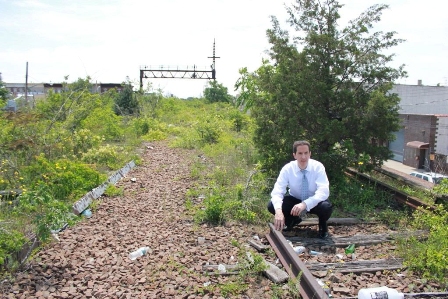The Rockaway rail line will soon be back on track.
The MTA released its 20-Year Capital Needs Assessment, which includes the restoration of the Rockaway Beach Rail Line.
“This report is a huge step forward,” said Assemblymember Phillip Goldfeder.
Goldfeder petitioned Governor Andrew Cuomo, the Port Authority and MTA last year in hopes of bringing back the rail line.
Rockaway residents frequently advocate for the rail line’s restoration, holding rallies and forums within the community.
Philip McManus, founder of Queens Public Transit Committee, said bringing back the line, which hasn’t been active since the 1960s, is the “big idea” that will greatly benefit the peninsula and beyond.
“A train doesn’t go one way, it goes both ways,” he said. “It’ll open up access to more jobs, better jobs, more schools, better schools.”
The MTA’s Capital Needs Assessment is a blueprint that details the transit group’s vision to improve the city’s transportation infrastructure for 2015 to 2034. It noted the current lack of available “travel corridors” in the area.
The report says there is a need for “major reconstruction and/or full replacement” of the line and falls into its “Major System Improvement” category. Alternative alignments and technologies may also be considered to “better meet the needs of Rockaway customers and their communities.”
The Rockaway line carries A train service, which will run through the borough from Rockaway Park to Manhattan’s Penn Station. Previously, it provided roughly a 40-minute commute to Midtown. McManus said it will also open up Howard Beach to Woodhaven and is long overdue for the isolated community.
“You look at before the train was taken — Rockaway was a thriving summer community. There was a lot of business down here,” he said.
The rail line segment that runs over Jamaica Bay will be addressed in the 2025 to 2029 period and the over-land segment in 2030 to 2034, said the MTA report. McManus is glad to hear any timeline.
“Before there was no timeline, it could have been 50 years. I’m glad we finally got a 20-year life sentence,” he said. “But I’m hoping this life sentence gets reprieved and we can get it done in five years.”
RECOMMENDED STORIES






























